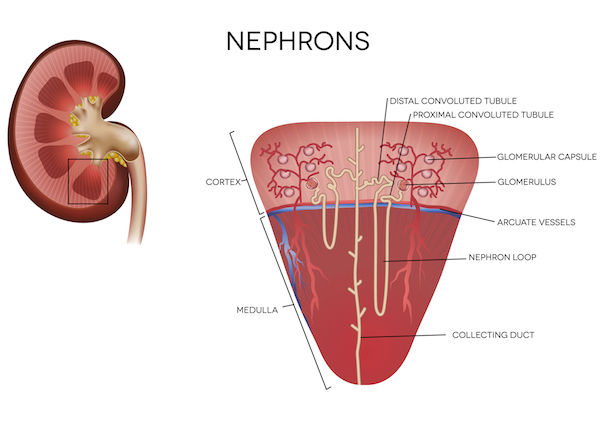
TUESDAY, Aug. 11, 2015 (HealthDay News) — Although a kidney transplant is considered the best hope for people struggling with end-stage renal disease, a new study conducted in Georgia found three-quarters of these patients weren’t even evaluated for a possible transplant within their first year of dialysis.
That finding flies in the face of U.S. regulations that require all dialysis centers to fully inform these patients about all available treatment options. Those options include kidney transplantation, a typically less expensive intervention than ongoing dialysis and one that also promises greater longevity and a better quality of life, the researchers noted.
What’s more, the team found a huge variation in statewide referral rates. Some dialysis centers failed to send even a single first-year patient for a transplant consultation, while others referred 75 percent of their new patients.
It remains unclear how well the rest of the country is handling kidney transplant referrals.
“And that’s an important caveat, particularly because Georgia also happens to have the lowest rate of kidney transplantation in the nation,” said study author Rachel Patzer, director of health services research at the Emory Transplant Center in Atlanta.
“So, it’s also possible that we have the lowest referral rate for transplantation as well. We don’t know. But it means that our findings many not necessarily reflect what’s going on nationally,” added Patzer, who is also an assistant professor in the division of transplantation within the department of surgery at Emory University’s School of Medicine.
Patzer and her colleagues report their findings in the Aug. 11 issue of the Journal of the American Medical Association.
More than 600,000 Americans currently have end-stage renal disease, the study authors said. For them, the first step towards a kidney transplant is often a dialysis center referral for evaluation at a the nearest transplantation facility.
To see how well this process was working in Georgia, investigators reviewed data from more than 15,000 such patients obtained from the U.S. Renal Data System.
Patients were between the ages of 18 and 69. All were undergoing dialysis at some point between 2005 and 2012. They were treated at one of 308 dialysis centers across the state.
Dialysis centers in Georgia are required to let patients know that kidney transplantation is an option within 60 days of starting dialysis, the study authors explained.
But the research team found that just only about 24 percent of patients, on average, were being referred for a kidney transplant evaluation at one of three Georgia transplant centers within a year of starting dialysis.
And nearly 5 percent of Georgia’s dialysis centers failed to refer a single first-year dialysis patient for a transplant consultation, the study revealed.
The facilities with the lowest referral rates tended to be nonprofits or located within a hospital setting. They also tended to be located in poorer neighborhoods, and have larger patient populations relative to available staff, particularly social workers.
Patients who got late referrals (more than a year following the start of dialysis) were more likely to be older, white and female, the study found.
On a positive note, researchers said that while only 22 percent of these patients received appropriate transplant referrals in 2005, that figure had risen to more than 34 percent by 2011.
But the study authors cautioned that getting an accurate handle on transplant access state-by-state is a complicated matter. They explained that risk factors for failing to get a timely transplant referral are not necessarily the same as those that ultimately keep patients from getting on a kidney transplant waitlist.
Patzer said kidneys should be viewed as a critical “natural resource.”
“Even though, in general, there is a limited supply of organs in this country, with kidneys we have a living donor option,” she said. “So, it’s important on the one hand that physicians don’t approach this issue as a question of limited supply. And on the other, that we ensure that all patients have equal access.”
But in an accompanying editorial, John Hopkins University transplant surgeon Dr. Dorry Segev argued that poor transplant referral rates are only one part of the picture.
“Clearly this study shows that we do have a referral problem,” he noted. “And it’s probably not just in Georgia. But even when patients do get a referral, it’s not enough to just hand them a piece of paper… Patients need to be offered education about the transplant process, and navigation assistance to help them get through the system, and encouragement.”
“But we know from national studies that many dialysis centers don’t offer this,” Segev said. “And we also know that when patients don’t get support along with their referrals, they often don’t make it through the process.”
More information
There’s more on kidney transplantation at U.S. National Institute of Diabetes and Digestive and Kidney Diseases.
Copyright © 2026 HealthDay. All rights reserved.

